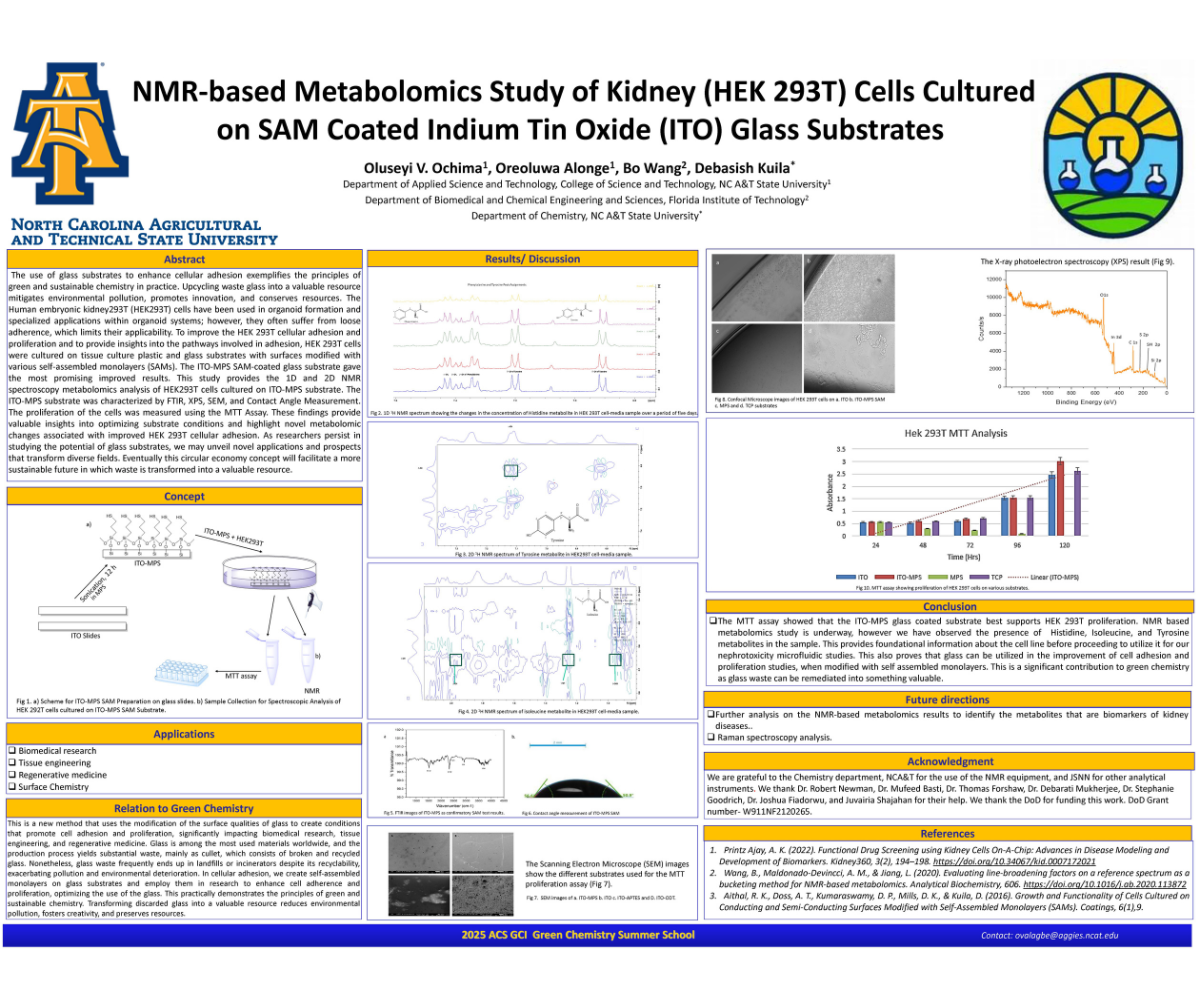
The use of glass substrates to enhance cellular adhesion exemplifies the principles of green and sustainable chemistry in practice. Upcycling waste glass into a valuable resource mitigates environmental pollution, promotes innovation, and conserves resources. The Human embryonic kidney293T (HEK293T) cells have been used in organoid formation and specialized applications within organoid systems; however, they often suffer from loose adherence, which limits their applicability. To improve the HEK 293T cellular adhesion and proliferation and to provide insights into the pathways involved in adhesion, HEK 293T cells were cultured on tissue culture plastic and glass substrates with surfaces modified with various self-assembled monolayers (SAMs). The ITO-MPS SAM-coated glass substrate gave the most promising and improved results. This study provides the 1D and 2D NMR spectroscopy metabolomics analysis of HEK293T cells cultured on ITO-MPS substrate. The ITO-MPS substrate was characterized by FTIR, XPS, SEM, and Contact Angle Measurement. The proliferation of the cells was measured using the MTT Assay. These findings provide valuable insights into optimizing substrate conditions and highlight novel metabolomic changes associated with improved HEK 293T cellular adhesion. As researchers persist in studying the potential of glass substrates, we may unveil novel applications and prospects that transform diverse fields. Eventually this circular economy concept will facilitate a more sustainable future in which waste is transformed into a valuable resource.